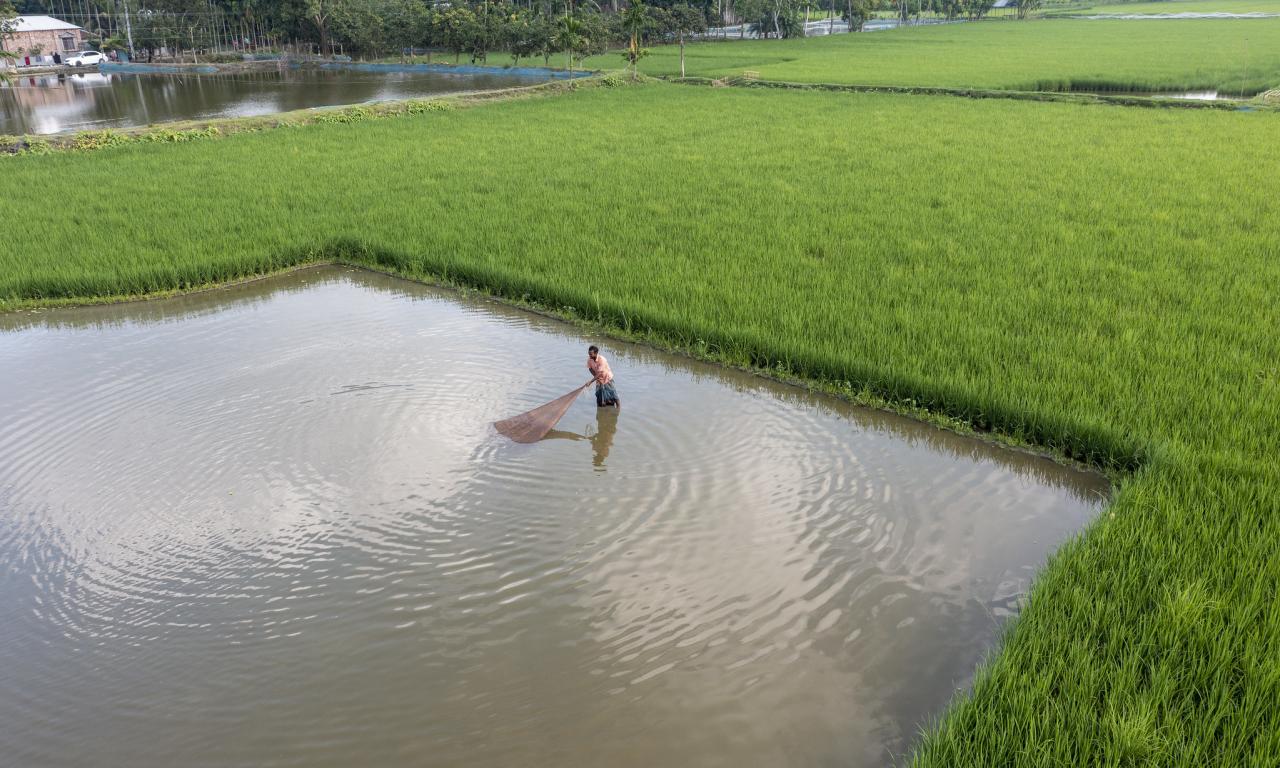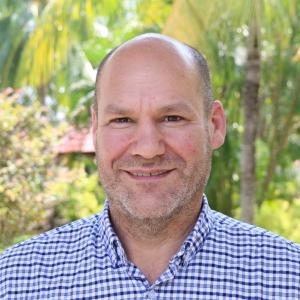
Many of the most climate-vulnerable countries are also heavily dependent on aquatic food systems for nutrition and livelihoods. This leaves them doubly exposed to the impact of climate change on aquatic ecosystems.
Not only are countries like Bangladesh, Cambodia, Malawi and Zambia more likely to face climate hazards, such as flooding, drought and shifting fishstocks, but these hazards are more likely to have a disproportionate effect on food security because of a high reliance on fish and other aquatic foods.
Climate risks to aquatic food systems in low-income countries are often compounded by a lack of information and advisory services for fishers and fish farmers, limiting their ability to effectively pre-empt and adapt to evolving climate-related challenges.
In 2023, WorldFish helped close this information gap by working with governments and partners to develop digital climate information and advisory services and to adapt aquatic food systems to climate change.
Climate Information at the Touch of a Button
For small-scale fish farmers facing increasingly unpredictable conditions, knowledge is power. With advanced warning, farmers can adapt and protect their fishstocks to reduce losses and safeguard their food and economic security. In addition, long-term planning for climate-smart systems, like integrated aquaculture and agriculture (IAA), can ensure the climate resilience of aquatic foods and the benefits they deliver.
Our teams across several countries worked to develop and advance climate-related digital services for fish farmers to help put them on the front foot against climate change.
In Bangladesh, we developed a policy brief alongside the Ministry of Fisheries to help develop the first digital climate information and advisory service for aquaculture in the Bengal Delta as part of the revision process of the national fisheries policy.
At the same time, WorldFish scientists produced the first economic evaluation of climate information services for aquaculture in Bangladesh. The assessment found that these services could represent economic value of up to USD$14 million a year in losses averted thanks to the ability to anticipate and mitigate climate hazards.
Meanwhile, in Zambia, one of the most vulnerable countries to climate change, we developed an early warning system for extreme temperatures to help protect farmed tilapia and ensure that farmers can maintain ponds at optimal temperatures for growth and productivity. Temperatures above 40°C (104°F) can be lethal for tilapia, while reproduction is limited below 20°C (68°F).
We developed an algorithm that forecasts water temperature based on air temperature trends. It feeds into a dashboard and generates color-coded alarms to trigger specific actions whenever the pond becomes too cold or too hot.
Traditional Practices for Today’s Challenges
Throughout 2023, we also helped fish farmers implement climate-resilient IAA systems. Many such practices have been used across the world for many years, but they can be scaled up for greater impact with technical support for best practices.
In India, we promoted integrated rice and fish farming in flood-affected low-lying areas in Assam to use resources more sustainably, diversify the food production system and improve income and nutrition. By growing rice and fish together, farmers are less exposed to the negative impacts of extreme rainfall and flooding on paddy fields, as fish offer an alternative source of food and incomes.
The five-year Assam Agribusiness and Rural Transformation Project (APART), supported by the World Bank, promoted rice–fish systems on 500 ha, reaching more than 800 beneficiaries, and was extended by a year in 2023 to build on these successes.
Meanwhile, in Bangladesh, through WorldFish’s genetics program, we provided farmers with improved seed for IAA systems, such as the fast-maturing G3 Rohu and small indigenous fish species, which are better adapted to local environments and climate challenges.
The G3 Rohu can grow up to 30 percent faster than conventional breeds with the same inputs, which allows farmers to get a better return. These improved breeds also contribute to more resilient integrated systems that include growing sweet potato, fruits and vegetables on pond dikes. This helps increase overall productivity as well as dietary diversity.
Through research and evidence-based innovations, WorldFish continues to work to empower fishers and fish farmers to thrive in a changing climate. With record-breaking global temperatures in 2023, those on the frontline of aquatic food systems in the most climate-vulnerable countries increasingly need tools that enable short-term adaptation while building resilience in the long-term.
“WorldFish is one of the long-trusted partners of the Department of Fisheries (DoF) actively supporting in the promotion of Aquaculture and Fisheries sector in Bangladesh to have major impacts in increasing production, income, and livelihoods of millions of people - the smallholder fish farmers, fishers, value chain actors”– Syed Md. Alamgir, Director General, Department of Fisheries, Bangladesh.


